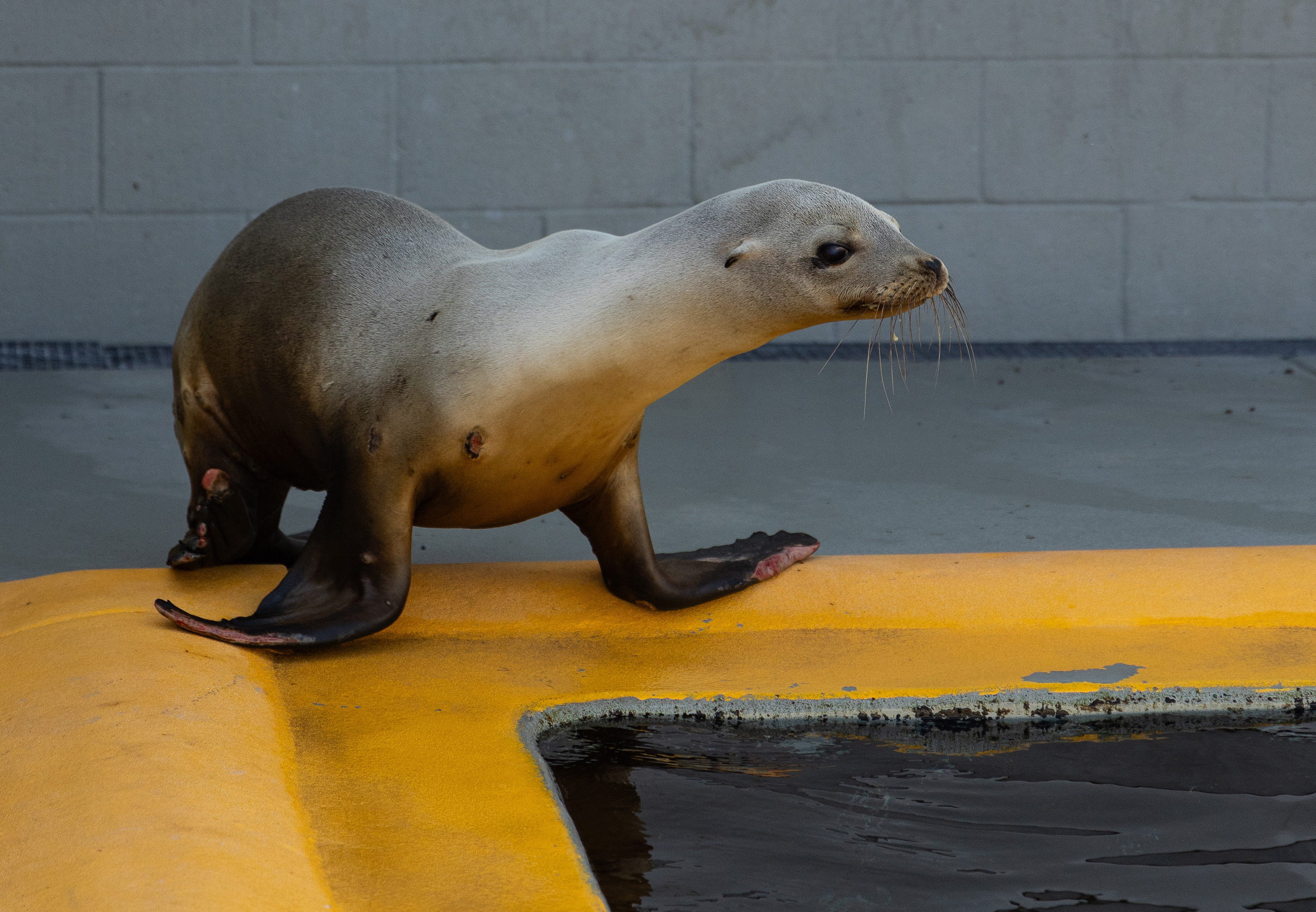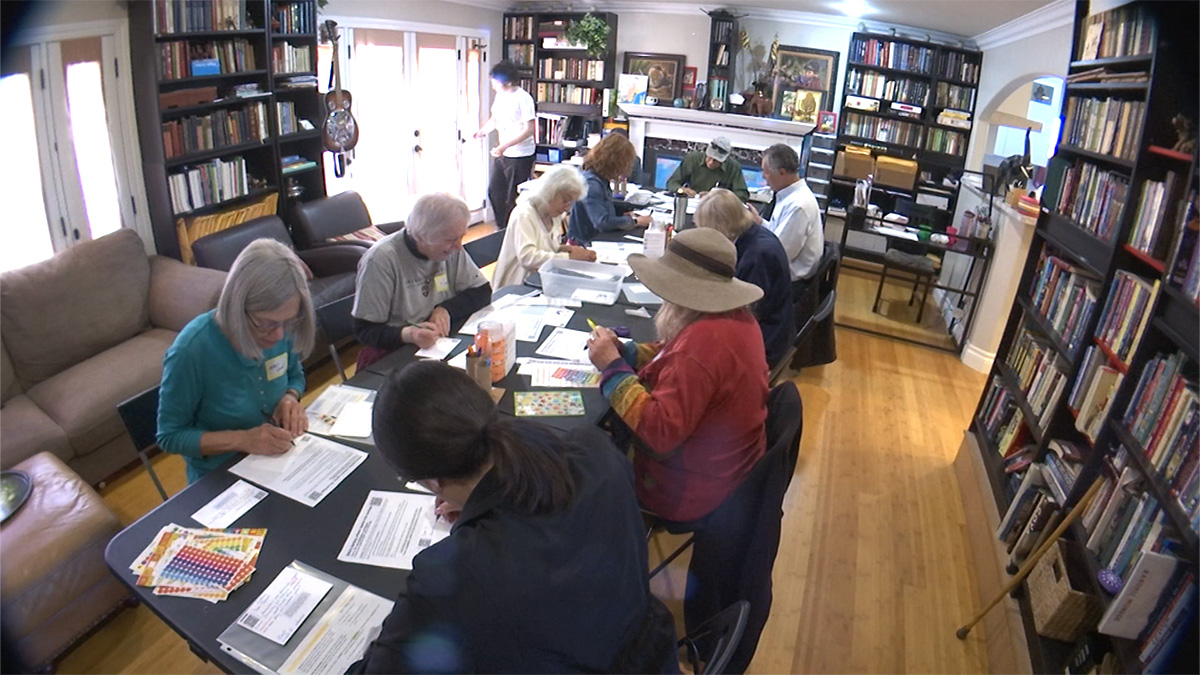Contra Costa's Board of Supervisors on Tuesday voted 4 to 1 to move forward with a controversial proposal to build a new wing at the Richmond jail, an expansion plan met with fierce resistance by its host city.
The plan proposes adding close to 120,000 square feet to the West County Detention Facility, including space for 400 beds and child-visitation, re-entry and rehabilitation centers. Supervisor John Gioia, whose district encompasses the working-class city, was the sole “no” vote on the board.
Sheriff’s officials must now submit the proposal for a $70 million grant from the state. The project will cost the county $25.2 million and around $5 million per year to maintain if approved.
Scores of community members in attendence balked at the cost, arguing that the county already is struggling to pay for mental health and education centers for people who are not incarcerated. About 50 people, many of whom live in Richmond, came to oppose the plan.
"How about we start releasing people from the prison and getting them back into the community, and making sure that people don't go to prison to begin with," Melvin Willis, Richmond City Councilmember and member of the Richmond Progressive Alliance, said. "What about our homeless population, what about our housing population, what about our messed up roads?"
The Sheriff’s Office has been pushing for a Richmond expansion since 2007. Community pushback has proven successful at halting those efforts.
The crux of the issue, according to the Sherrif's Department, is overcrowding. Currently, the Martinez facility is the only jail in the county authorized to house high-risk inmates. Inmate population there there has swelled from the recommended 384 to about 690 — pracitically doubling in capacity without adding infrastructure or re-entry programs. That overcrowding contributed to a 68 percent surge in inmate assaults over the past four years, according to the sheriff's report.
Local
“We need to invest in people now so they don’t re-offend, so they don’t wind up in prison,” Capt. Tom Chalk, the West County detention division commander for the Sheriff’s Office, said.
At Tuesday's board meeting, members of the Racial Justice Coalition said they worry the expansion plan is a guise so the county can make room for more inmates rather than relocate existing ones. Gioia expressed concern that the Martinez facility would end up overcrowded again in a few years time.
Another key point of contention is the sheriff’s collaboration with Immigration and Customs Enforcement, a boon that helps the department rake in an about $3 million per year and takes up about 200 beds. The proposal’s opponents argued that the deal, in which the department detains people at the behest of immigration officers, contributes to overcrowding and creates distrust between local law enforcement and immigrant communities.
“This is a really hard issue for us because it hits all of our houses,” Claudia Jimenez, a Richmond resident, said. “We don’t have a hospital – a full size hospital – in West Contra Costa, but they are going to say yes to more jails.”
Chalk attempted to address the trust concerns, telling the board that expanding the jail was the “humane thing” to do for the inmates.
“I know there’s a trust factor that people talk about, and I get that,” he said. “This facility’s only purpose is to prepare people for rehabilitation and getting them back on track. The alternative is we do nothing. We’re trying to do right by these people, and nothing more than that.”
Throughout the three-hour public comment period, the subject of racial inequality in the criminal justice system led to tense moments between the board, which includes one person of color, and community members.
Supervisor Candace Andersen, who represents the most affluent cities in the county, including Lafayette, Orinda and Moraga, remarked anecdotally that she grew up in a diverse community in Hawaii, where she said she was a minority.
“I sometimes find it very peculiar here on the mainland when it’s pointed out ‘Hey, you’re a white woman,’” she said. “We’re all people. So I would love to sort of keep that out of the equation as we discuss this.”
The remark irked Edith Pastrano, a member of the Racial Justice Coalition, who believes that expanding jails will eventually lead to a larger number of people of color behind bars. It’s impossible to have a comprehensive discussion about criminal justice without factoring in racial disparities, she said.
“It bothered me on a personal level when she said that,” Pastrano said. “It made me think she doesn’t understand the disparities our communities face.”
Supervisor Federal Glover, who is black, said both issues — racial injustice and jail overcrowding — could be worked on at the same time. He concluded that the grant is an opportunity to build positive programs for inmates, describing it as a net-positive for all communities in the county.
“I realize that the population within our jails are overpopulated with African Americans, and that is a real issue,” he said. “And one day, we’re going to have to figure out how to serve that.”
The final decision whether the county gets the $70 million needed in state funding rests with the California Board of State and Community Corrections. The Sheriff’s Office will submit the proposal later this month.



